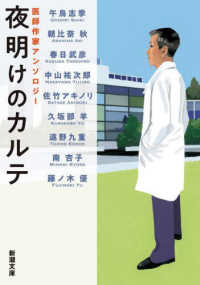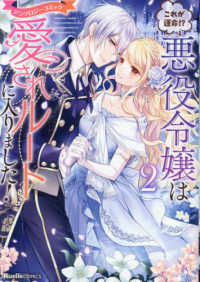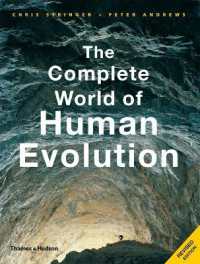- ホーム
- > 洋書
- > 英文書
- > Nature / Ecology
基本説明
Demonstrates the remarkable historical role played by ants as a node where notions of animal, human and automaton intersect.
Full Description
Ants long have fascinated linguists, human sociologists, and even cyberneticians. At the end of the nineteenth century, ants seemed to be admirable models for human life and were praised for their work ethic, communitarianism, and apparent empathy. They provided a natural-theological lesson on the relative importance of humans within creation and inspired psychologists to investigate the question of instinct and its place in the life of higher animals and humans. By the 1930s, however, ants came to symbolize one of modernity's deepest fears: the loss of selfhood. Researchers then viewed the ant colony as an unthinking mass, easily ruled and slavishly organized. In this volume, Charlotte Sleigh uses specific representations of ants within the field of entomology from the late nineteenth to mid-twentieth centuries to explore the broader role of metaphors in science and their often unpredictable translations. Marking the centenary of the coining of "myrmecology" to describe the study of ants, Six Legs Better demonstrates the remarkable historical role played by ants as a node where notions of animal, human, and automaton intersect.
Contents
Acknowledgments
Introduction
Part I: Psychological Ants
1. Evolutionary Myrmecology and the Natural History of the Human Mind
2. A (Non-)Disciplinary Context for Evolutionary Myrmecology
Part II: Sociological Ants
3. From Psychology to Sociology
4. The Brave New World of Myrmecology
5. The Generic Contexts of Natural History
6. Writing Elite Natural History
7. Ants in the Library: An Interlude
Part III: Communicational Ants
8. The Macy Meanings of Meaning
9. From Pheromones to Sociobiology
Conclusion
Notes
Essay on Sources
Index








